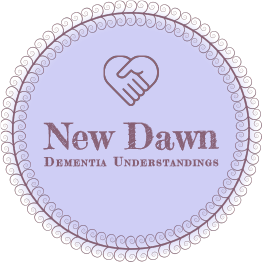IT’S THE DISEASE NOT THE PERSON
If you’ve met one person living with Dementia, you’ve met exactly one. The progression of symptoms associated with Dementia vary greatly from person to person. Symptoms associated with certain “stages” of Dementia may present early in some, or not at all in others. Whatever the stage or severity of the symptoms it is most important to separate the Disease from the person.
Those living with Alzheimer’s Disease and other disease induced types of Dementia should not be defined by their diagnosis. They are still the same person they always were. Yes, they may now be acting differently, but that is the disease, not the person.
They are not personally trying to frustrate you with the same repeated question; their disease has rendered them unable to store and recall the answer you just gave them, or recall that they asked the question in the first place. They are not trying to act inappropriately in social situations; their disease has damaged the portion of the brain that filters and tempers their reactions to stimuli and events. They’re not trying to embarrass you; they have a disease which at this point in time cannot be prevented, slowed or cured.
Imagine how it must feel to them. Think of how they may feel when the words they seek seem to be on the tip of their tongue, but lost to speech. The Disease has damaged their Semantic Memory (word finding)
With most other diseases we are able to separate the diagnosis from the person. We don’t see someone going through cancer and criticize them for losing weight; we see what the disease has caused. The disease, not the person. Yet, this still seems to be a challenge when faced with a disease which produces Dementia. Think about it. We often hear “He wanders around the house all day; She asks the same questions over and again; he/she has rude behaviors”. Again, the disease, not the person.
They may not be able to recall who we are, but we know who they are. The mom who baked birthday cakes, the dad who hung holiday lights, the grandparents who let you sneak a cookie or two are still the same people. Their disease is causing changes which may be frightening and frustrating to them and their caregivers, but it is the disease not the person.
